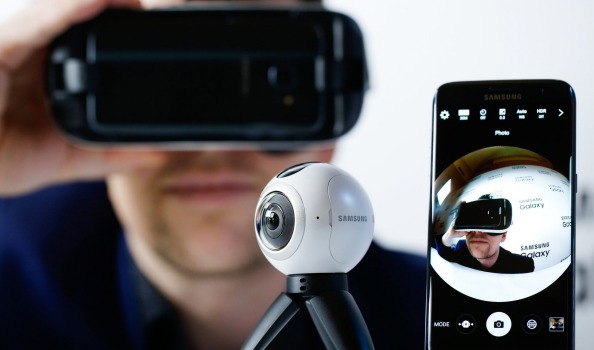
By Paul O'Shea
The Olympic motto — Citius, Altius, Fortius (faster, higher, stronger) — has long been the collection of meaningful words that athletes strive for, to do their absolute best, no matter the obstacle. The two-week event is a showcase for the best talent from around the world in each of the 306 events from about 40 sports, and held this time in Rio de Janeiro, Brazil.
Not surprisingly, the Olympics is also a showcase for global companies to get in front of billions of viewers. You can see how important it is to electronics companies just by looking at the list of financial supporters of the games. Fifty-eight companies provide support to the Olympics, and, of those, approximately 16 are companies steeped in hardware, software, or IT technology. There are some big names, like Cisco, Panasonic, Samsung, Microsoft, and GE, as well as others that you probably haven’t heard of because they provide support mostly in Brazil.
This is a chance for companies like Samsung to get directly in front of all 12,500 Olympians by providing them with a special Olympic Games’ edition of the company's Galaxy S7 Edge smartphone. Samsung also provided an app that will display the country flag of choice in the phone’s screen, so that the athletes can wave them during the opening and closing ceremonies.
NBC will be broadcasting the 260.5 hours on TV but, more importantly, the network will be streaming very accessible live coverage, and you get to choose which sport you want to watch. And the connection speeds for this (unless you have a telephone connection) are said to be fast enough. Additionally, I don’t know about you, but watching this on my 25-in. computer monitor seems to be too small to capture some of the high-speed and up-close action. So, I really don’t understand why anyone would want to watch this fast-moving action on a 5- to 7-in. smartphone screen. Maybe it’s my eyes.
If you have a service provider offering 4K broadcasts, and you have a 4K TV, you can see up to 83 hours of coverage by NBC. However, there’s a catch: a one-day delay from the live event and the 4K replay. 8K broadcast of the Olympics from Japan’s NHK will be available in Japan. That’s pretty spectacular, especially once you realize that the company must have cutting-edge cameras, mixers, recording equipment, and monitors to handle the uncompressed 8K video in real-time, at data rates near 100 Gbps! Then it needs to be compressed and encoded for broadcast in real-time. The satellite signal from this could be 40 Mbps so the consumer TVs will have to decode, which is something that doesn’t exist yet. So, NHK got creative and set up public viewing stations across Japan. That’s expensive but creates brand recognition and good will among consumers.

Samsung adds VR to the Olympics
If you are a techno-junkie you can even see virtual-reality and 360-degree video and images. NBC plans 85 hours of virtual reality coverage. Of course, you’ll need a Samsung Galaxy smartphone compatible with Gear VR to be able to access the VR content section of the NBC Sports app. If you want to see 360-degree images, Getty is providing every Getty photographer at the games with a 360-degree camera.
Finally, I have one more observation about these summer Olympics and the technology used. I wonder if these games will also be the inflection point for viewers to make the big switch from broadcast TV — with its heavy loading of commercials — to a streaming mode in which users aren’t subjected to commercials and they can watch what they want, not just that which is preordained by the broadcast company.
Advertisement





